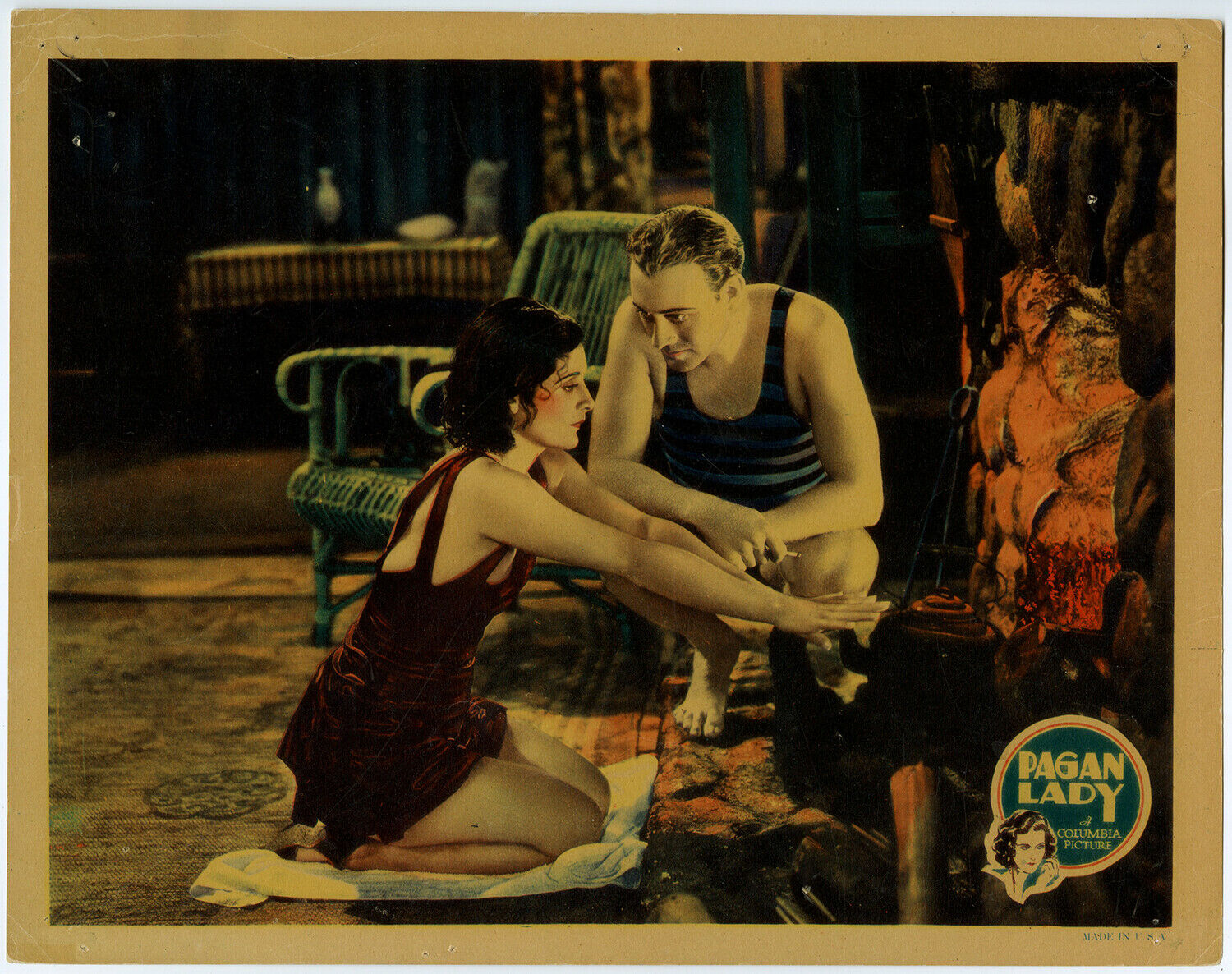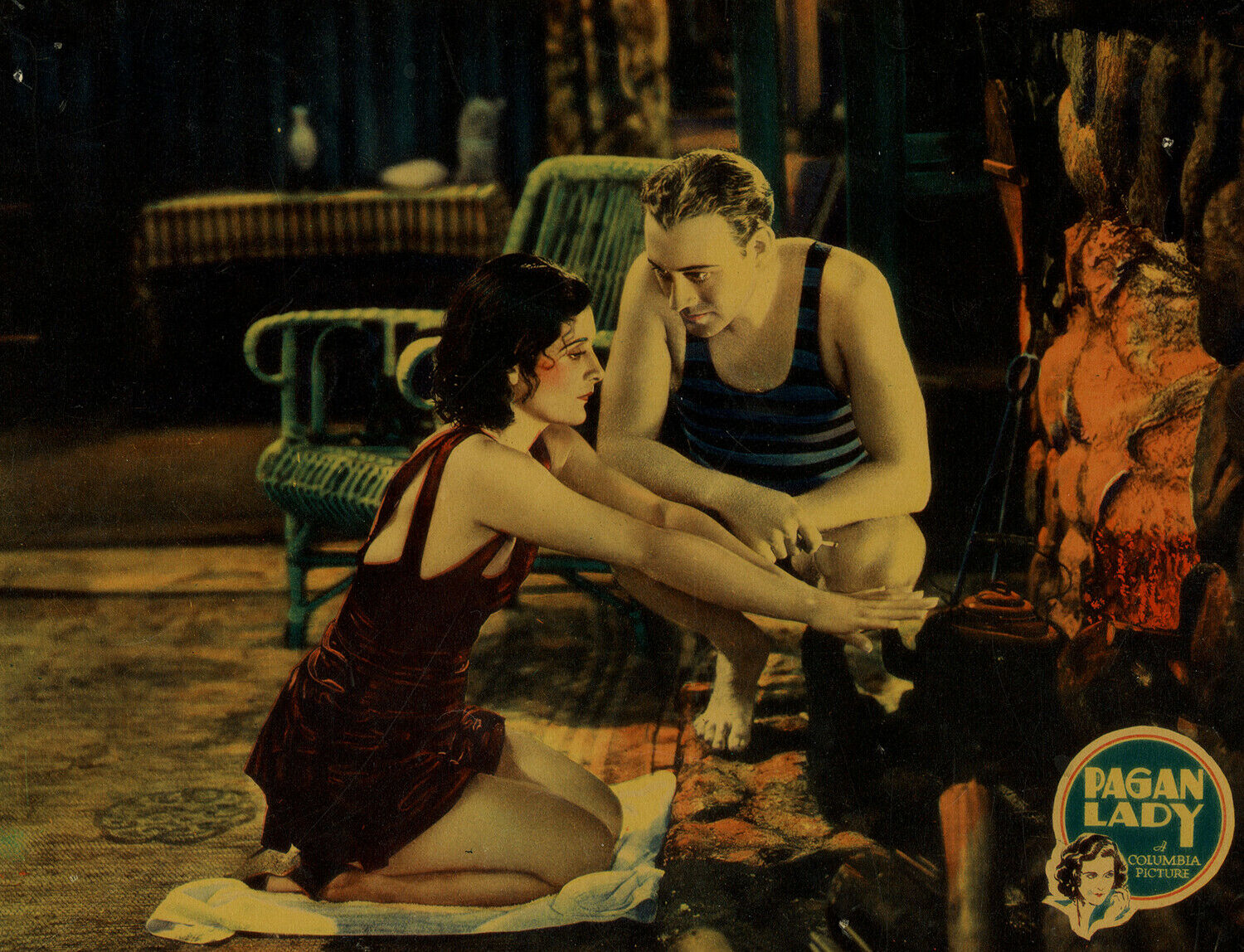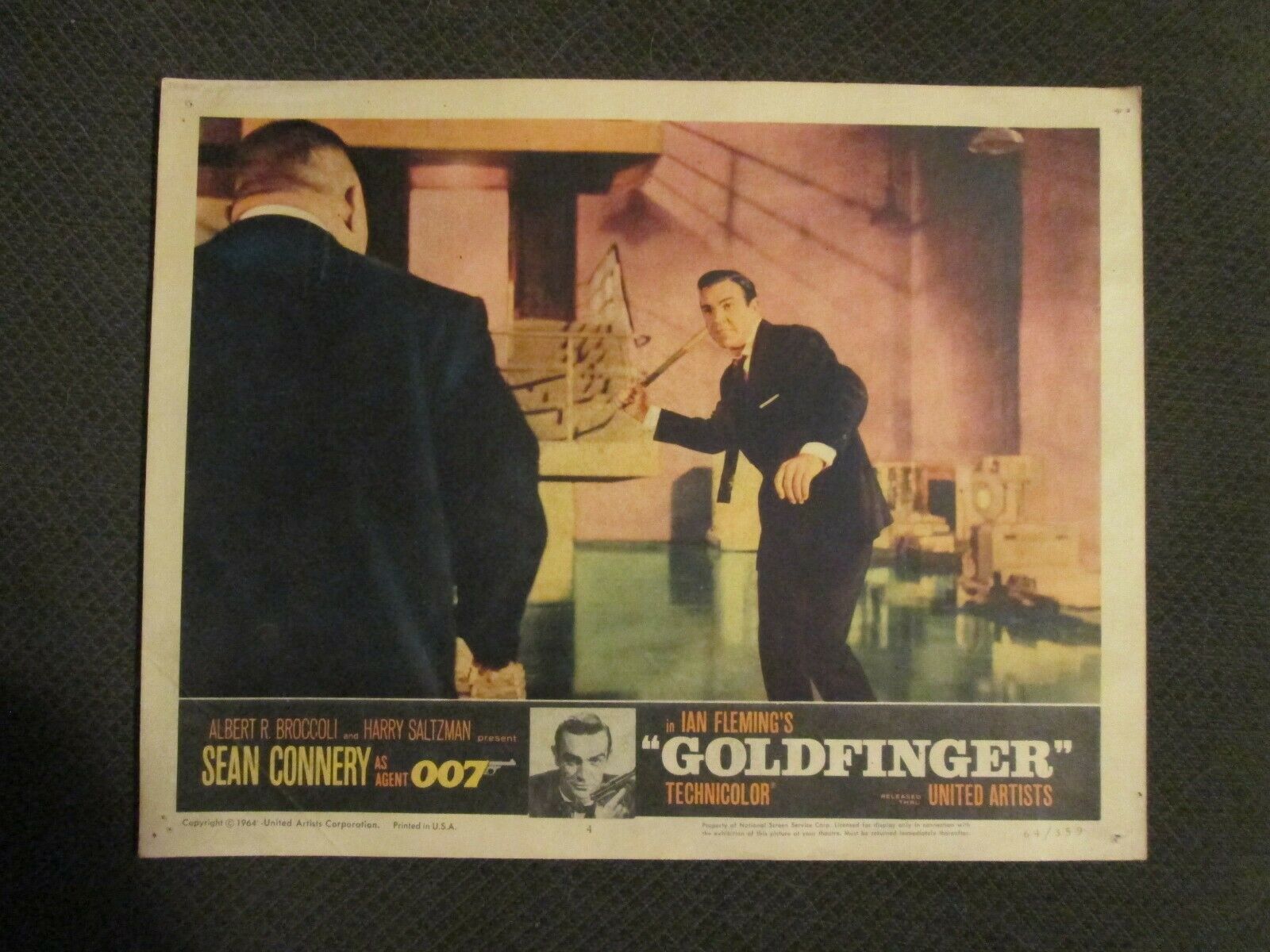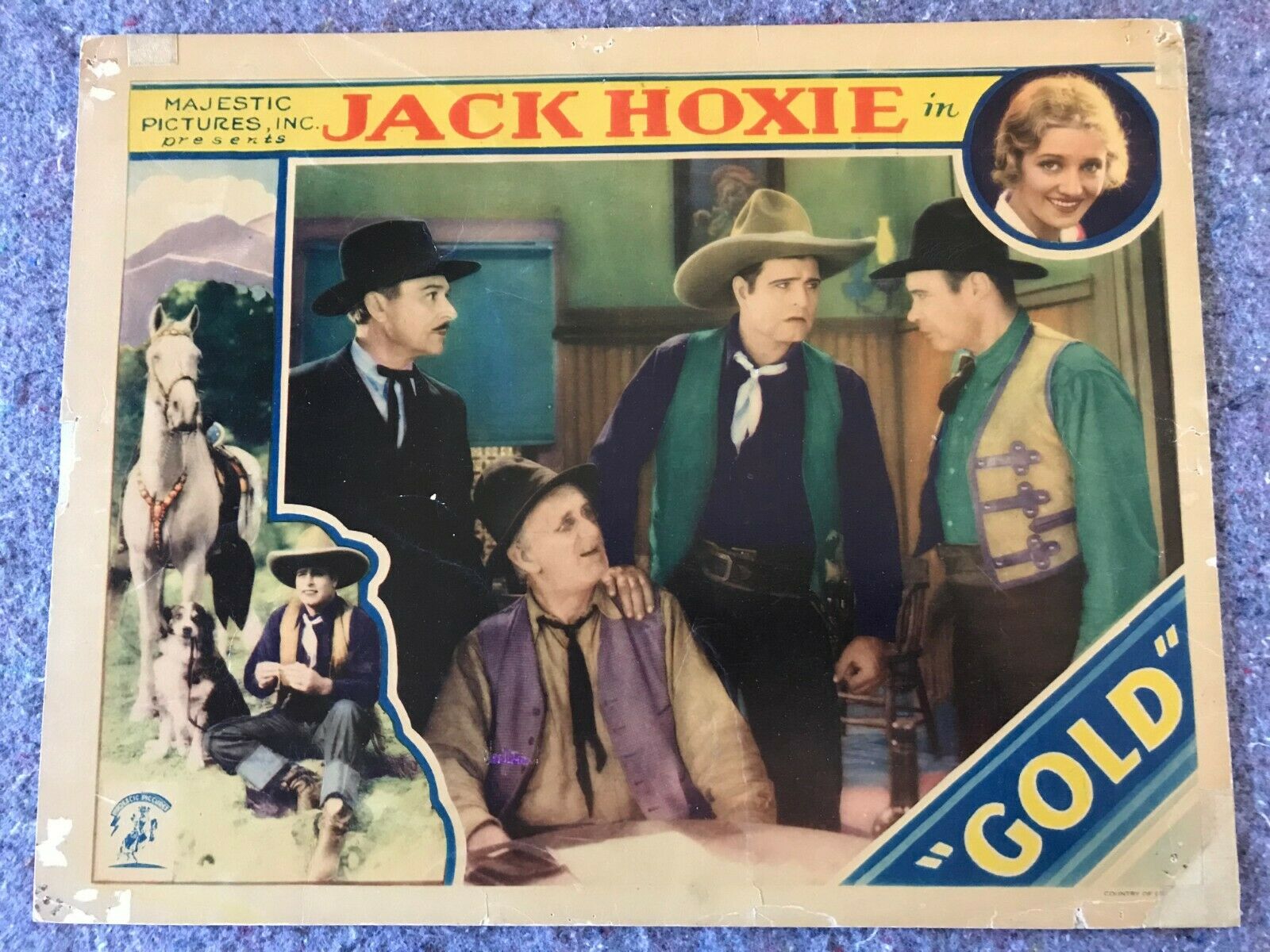-40%
Evelyn Brent & Conrad Nagel in The Pagan Lady 1931 Original Pre-Code Lobby Card
$ 2.61
- Description
- Size Guide
Description
ITEM: This is a vintage and original Columbia Pictures lobby card advertising the 1931 pre-Code drama film, "The Pagan Lady." In this Scene Card, Evelyn Brent and Conrad Nagel are both swimsuit-clad as they dry themselves off and warm up beside a fire roaring to life in a stone cabin hearth.The film revolves around a free-spirited bartender on a tropical island who has a reputation as a "pagan lady", who hops from man to man and bed to bed. The young son of the island's fire-and-brimstone evangelist arrives on the island, falls in love with her and proposes marriage. The proposal affects her in a way she hadn't planned on.
Small posters on card stock (usually 11" x 14" in a horizontal format), lobby cards were generally produced in sets of eight, intended for display in a theatre's foyer or lobby. A lobby set typically consists of one Title Card (a lobby card of special design usually depicting all key stars, listing credits, and intended to represent the entire film rather than a single scene) and seven Scene Cards (each depicting a scene from the movie). Lobby cards are no longer used in theatres today.
Lobby card measures 14" x 11".
Guaranteed to be 100% vintage and original from Grapefruit Moon Gallery.
More about Evelyn Brent:
Petite, sultry leading lady of the 1920's and 30's, who was born and schooled in Tampa, Florida, until the age of ten when she lost her mother. She moved to New York with her dad and started modelling while still in her teens. Her original intention was to go into the teaching profession. Instead, she became enamored with acting during a school visit to the Popular Plays and Players Studio in Ft.Lee, New Jersey, a production cooperative for distributors World Film, Pathe and Metro. Before long, Evelyn had a job as an extra for a week, using her original name, Betty Riggs. Between 1914 and 1920, she appeared in featured film roles with stars like Olga Petrova and John Barrymore (who hand-picked her as his leading lady for 'Raffles' in 1917), then took a sabbatical for health reasons and went to England.
By making the acquaintance of American playwright Oliver Cromwell, she was able to land a good role in the George Bernard Shaw comedy 'The Ruined Lady' on the London stage. This, in turn, led to her being cast as leading lady in several British films and, in 1922, she even went to Spain as star of The Spanish Jade (1922), distributed in America by Paramount. Upon her return to the United States in 1924, she was briefly under contract to Fox, then joined Associated Authors, and, finally, Paramount-Famous Players-Lasky (1926-30). At the height of her career in silent films, the dark-haired, aquiline Evelyn became a matinee idol with performances as exotic temptresses and vamps, particularly in films by Austrian director Josef von Sternberg. She was notable as the gangster's moll, Feathers, in Underworld (1927) (the proverbial 'tough broad with the heart of gold'); and as a self-sacrificing Russian girl in love with an exiled Czarist general (Emil Jannings) in The Last Command (1928). She had another good part in Paramount's first all-talking picture, Interference (1928), as a blackmailer.
While Evelyn's voice proved no detriment to her success in talking pictures, the declining quality of her films did. Her Alaskan epic The Silver Horde (1930), in which she played another disreputable character named Cherry Malotte, was described in critical review as 'dull and trivial' (New York Times,October 25). Her performances as gang molls in Framed (1930) and The World Gone Mad (1933), and her unlikely mission worker in Madonna of the Streets (1930), engendered lukewarm write-ups like 'satisfactory' or 'competent', which did nothing to elevate Evelyn's post-Paramount career. By the end of the decade, she had moved down the cast list from second leads to supporting roles, finally appearing in westerns and 'quota quickies' for poverty row studios, such as Monogram and PRC. In the 'cheap and cheerful' category, she seemed to enjoy herself in the Columbia serial Holt of the Secret Service (1941), as Kay Drew, partner of tough agent Jack Holt. She was memorable, in one of her last roles, as a one-armed satanist in the eerie Val Lewtonhorror flic about devil-worshippers in Greenwich Village, The Seventh Victim (1943).
After making her last film in 1950, Evelyn found work as an actor's agent with the Thelma White Agency in Hollywood. After the death of her third husband, Harry Fox (who gave the Foxtrot its name) in 1959, Evelyn made a final screen appearance as a guest star on Wagon Train (1957). She left the limelight for good in 1960 and lived her remaining years in retirement in Westwood Village, California.
- IMDb Mini Biography By: I.S.Mowis
More about Conrad Nagel:
Conrad Nagel was an actor who had a successful Hollywood career. Nagel began his acting career appearing in various films, such as "Nice People" (1922), "The Impossible Mrs. Bellew" (1922) and "Saturday Night" (1922). He also appeared in "Sinners in Silk" (1924), "Dance Madness" (1926) and "The Waning Sex" (1926). His passion for acting continued to his roles in projects like "Dynamite" (1929), "Kid Gloves" (1929) and "The Hollywood Revue of 1929" (1929). He also appeared in "A Lady Surrenders" (1930). Nearing the end of his career, he tackled roles in "The Man Called Back" (1932), the drama "Ann Vickers" (1933) with Irene Dunne and "The Marines Are Coming" (1934). He also appeared in "Yellow Cargo" (1936) and the Joan Bennett comedy "Wedding Present" (1936). Nagel was most recently credited in "The Kiss" (1991). Nagel passed away in February 1970 at the age of 73.
Biography From: TCM | Turner Classic Movies










